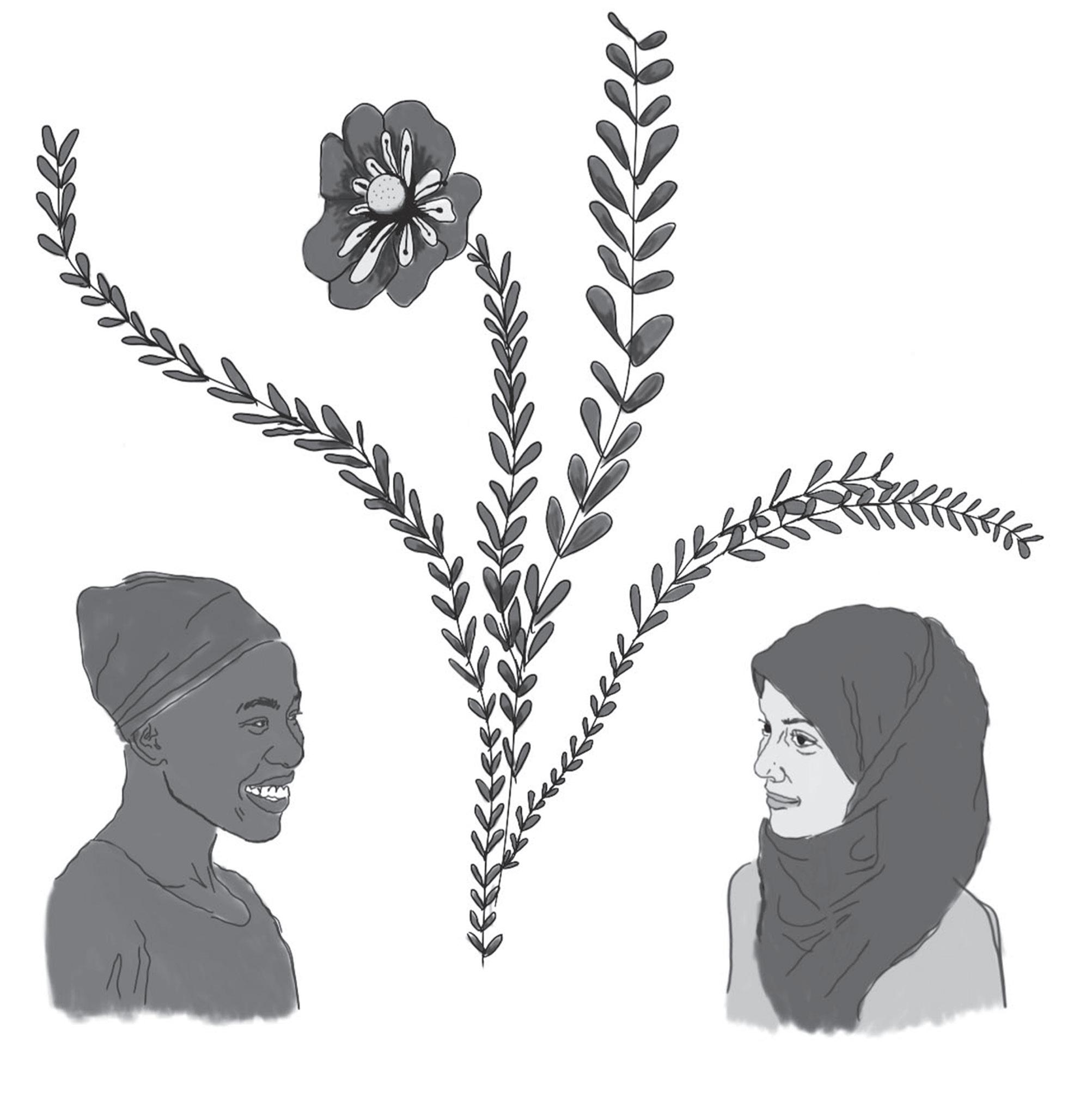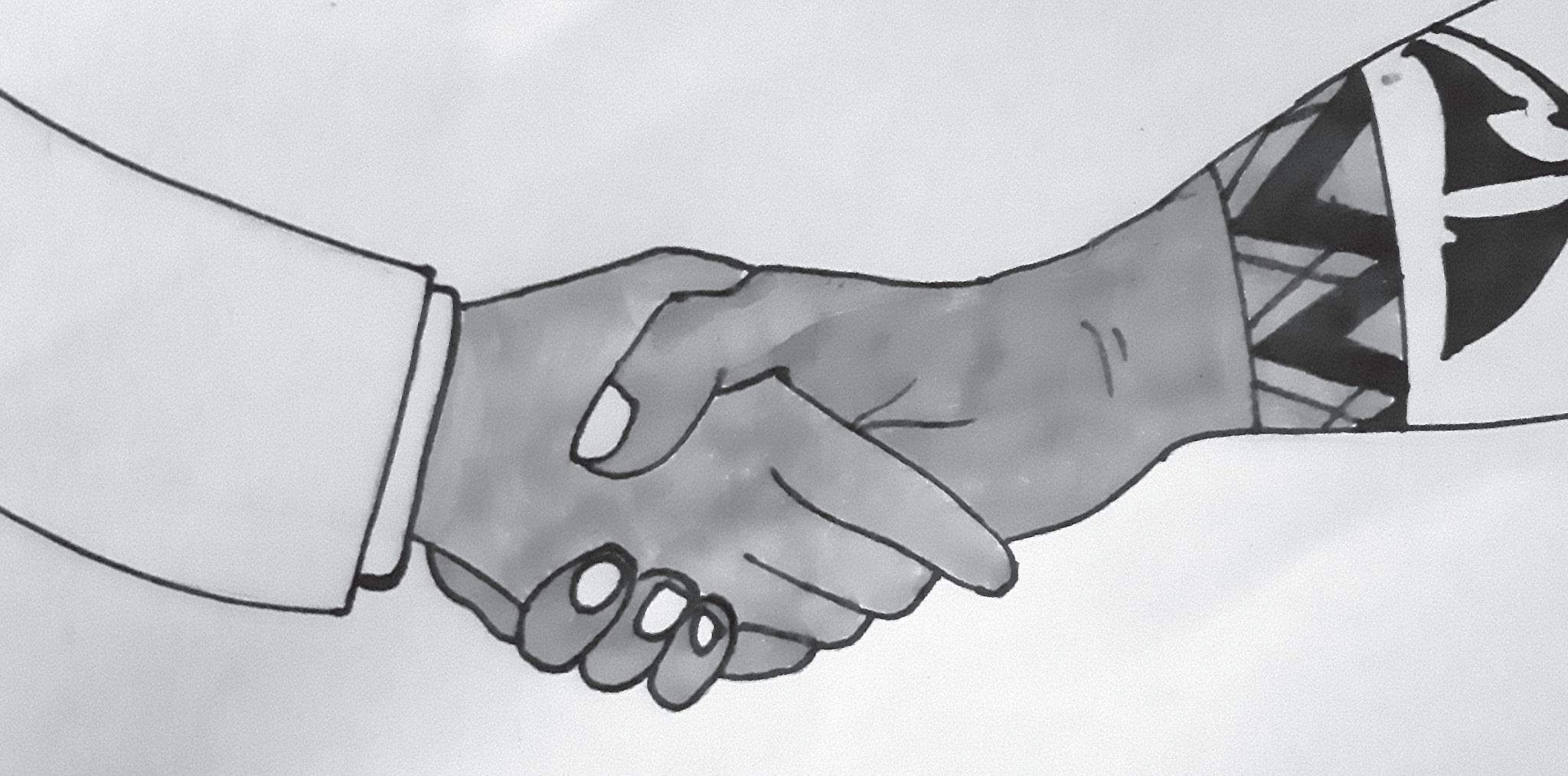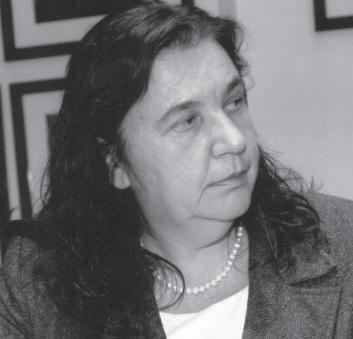
4 minute read
Reflecting on migration as a Christian–Orthodox believer
— dr. niki papageorgiou Assoc. Professor in Sociology of Religion Faculty of Theology – Aristotle University of Thessaloniki
6 Despite the fact that the phenomenon of population movements characterizes many historical periods, migration is related to the birth and function of contemporary industrial society and is connected with the development of capitalism. Nowadays, in the framework of globalized capitalism, the movement of populations is more intensive than in the past. The internationalization of the market and commerce increases the movement of capital, as well as the movement of goods, services and people. On the one hand, the “opening” of borders, and on the other hand the pressure that derives from the environmental and demographic problems of the Developing World, which actually aggravate the problems of underdevelopment, intensify the population movement towards developed countries. In this way, a social diversity is created that may function either as a source of bonds of solidarity and sociability, or may trigger tensions, social exclusions and violations of human rights.
Advertisement
I
Apart from its social dimensions, the treatment of diversity constitutes an important theological issue. The teaching of Church for the human being as “image of God” – based on the first chapters of the Old Testament - may constitute a basis for the discussion in question. The understanding of human being as “image of God” contributes to overcoming barriers and discrimination based on sex, national or social origin, financial situation or religious faith. The communion of people may rely on this fact that comes as a result of their common origin from God and in accordance to the communion of the three persons of the Holy Trinity.
The theology of person acquires a new dynamic with the incarnation of Christ, which provides new argumentation for the treatment of diversity. The incarnation of Christ meant renovating and saving the whole mankind, thus abolishing discrimination and inequalities. The “other” is considered the person for whom Christ died. The human being is called to imitate God and to cultivate unselfish love towards others.
The neighbor is not defined by place or relationship but the one whom we approach in love. In this parable, Christ ‘attacks’ the xenophobia of Judaists and at the same time every future xenophobia, as the unexpected help comes from the culturally and religiously other.

Moreover, it is Christ himself who confirmed with the parable of the Last Judgment that our atitude towards strangers constitutes an important criterion of salvation. In this parable Christ himself identifies with the stranger (“I was a stranger and you took care of me’ Mathew 25:35). The Stranger is not the familiar who is easy to face, but the other, the diferent. It is he who difers regarding religion, ideology, color, ethnicity or nationality.
There is a hymn in the Orthodox Church, which is chanted on Holy Friday. In this hymn, the hymnographer sends Joseph of Arimathea to ask for the body of Christ from Pilate with the repeated phrase “give me this stranger”. In this hymn Christ takes the image of the stranger and actually identifies with every human being that lives in conditions of migration, strangeness, being a refugee, abjection, poverty, etc.
The theology of diversity probably remains theoretically weak and inefective, if it is not supported by actions, which will have as a result the diakonia of the human being, i.e., the migrant. This is the reason why specific interventions on the part of the local Churches are necessary both at discursive and practical levels. The ofcial ecclesiastical discourse may be expressed either at the global, ecumenical level, or even beter at the local one. As for Church’s practices, they may include a variety of activities that refer to the reception and care of migrants.
It is well known that at the ecumenical level the World Council of Churches and the Conference of European Churches systematically deal with the migration issue by organizing special commitees and congresses. Nevertheless, many times the discourse of the Churches at the ecumenical level remains within the conference rooms, in the international forums. Despite the fact that the theological discourse is dynamic and radical, it does not necessarily reach the believers. This situation creates phobias and reflexives, which are not at all Christian, in the daily life exchanges. All these necessitate practices, which will activate the ecclesiastical body towards the acceptance of diversity and the creation of specific actions that will lead to migrants’ integration.
European Churches may and do organize in many cases social services and social networks that help migrants to face the problems of their new life. In Greece, for example, the Greek Orthodox Church, either at the Archiepiscopal level or at the level of local Metropoles, which host a big number of migrants, take initiatives for the help and support of migrants. Help involves food, clothes, necessities, Modern Greek language courses, sometimes even rent payments, for bridging the gap between local owners and migrants.
An important and at many times combative dimension of diversity is the factor of religion, which constitutes an important dimension of the individual and collective identity of migrants. Dialogue and communication, which may be realized either at the level of religious leaders, or that of believers, can break down the conflicting tendencies, appease the militant side of religions and conduce to consensus and exchange. The pursuit of inter-religious dialogue is difcult to achieve a unique truth, as each religion approaches truth in its own way, but can face common problems, which concern every human being regardless of their religion. The demands for peace, social justice or conservation of the environment constitute a common basis for communication and dialogue as people from all over the world share the same needs for life, health and happiness.
In conclusion, “the opening of borders” brought the strangers to our home, to our neighborhood, to our city, to our nation. The strangers live between us, they “question” our internal and external borders and challenge our personal, national, cultural and especially ecclesiastical limits. For this reason we should face migration as a challenge and not as a problem. Migration as a theological challenge is a bet on ourselves and puts to the test the limits of our acceptance of the others.
— niki papageorgiou
Niki Papageorgiou is an Associate Professor of Sociology of Religion and Ethics in the Faculty of Theology of Aristotle University of Thessaloniki. She teaches Sociology of Religion and Christianity, Introduction to Ethics, Religion and Society in the Modern Greece, Religion and Migration. She is VicePresident of the Greek Society of Middle East Studies.





